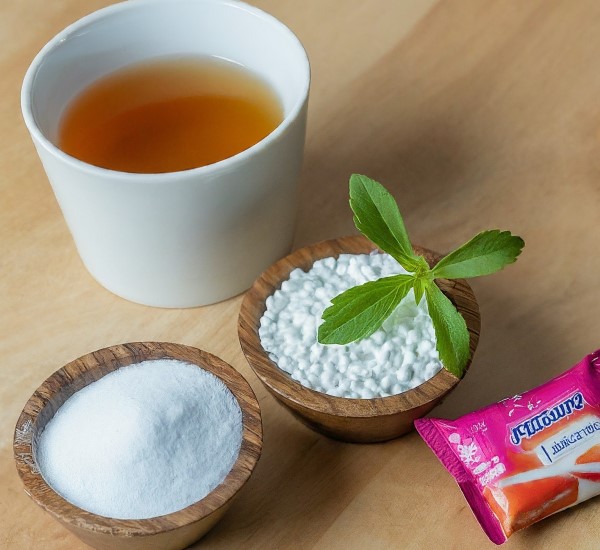The Sweetener Showdown: Picking the Perfect No-Cal Option for You

The Sweetener Showdown: Picking the Perfect No-Cal Option for You
Let’s face it, sugar is delicious. But those pesky calories can add up fast. That’s where artificial sweeteners swoop in, promising a guilt-free way to satisfy your sweet tooth. But with so many options on the shelves, from stevia to sucralose, which one reigns supreme in the safety department?
The good news is, all the widely used artificial sweeteners in the US have been thoroughly evaluated by the Food and Drug Administration (FDA) and are generally recognized as safe (GRAS) for consumption [1]. This means they’ve undergone rigorous testing to ensure they won’t harm you in typical amounts.
But here’s the thing: “safe” can be a broad term. Let’s explore some popular options and see if any stand out:
- Stevia: This plant-based sweetener has been trending for a while, and for good reason. Stevia boasts zero calories and comes from the leaves of the stevia plant. Some people find it has a slightly bitter aftertaste, but it’s a natural choice for many.
- Sucralose: This sweetener is a favorite in diet sodas and baked goods. Made from sugar molecules with some chlorine atoms swapped in, it’s highly sweet and stable at high temperatures. Sucralose seems to pass through the body without being broken down, which some find appealing.
- Aspartame: This oldie-but-goodie has been around for decades. Made from amino acids, it’s incredibly sweet, but there’s been some controversy surrounding it. The FDA maintains aspartame is safe, but it’s worth noting people with phenylketonuria (PKU) need to avoid it [2].
- Saccharin: This granddaddy of artificial sweeteners has been around since the late 1800s! While safe, it can have a bit of a metallic aftertaste, which is why it’s often blended with other sweeteners.
So, what’s the verdict?
The truth is, there’s no single “safest” sweetener. They all have their pros and cons. Here are some tips to help you choose:
- Consider your taste preferences. Some sweeteners have a bit of an aftertaste. Try small quantities of different ones to see which you like best.
- Think about your health goals. If you have PKU, aspartame is a no-go.
- Read labels carefully. Many products combine sweeteners, so check the ingredients list.
Remember, moderation is key. While artificial sweeteners are safe, it’s still best to limit your overall intake of sweet things, whether they have calories or not.
The Bottom Line
Artificial sweeteners can be a helpful tool for managing your sugar intake. By understanding the options and considering your own needs, you can pick the perfect one to sweeten your life, safely!






